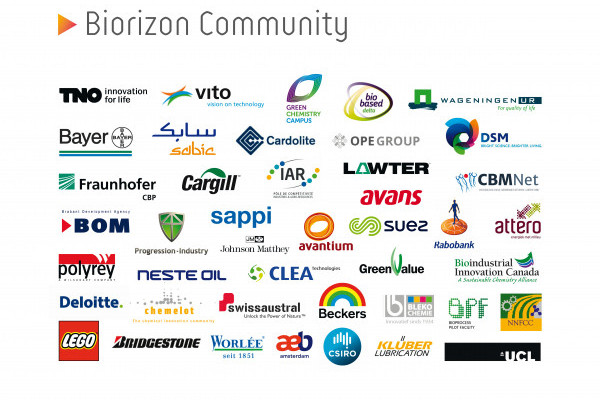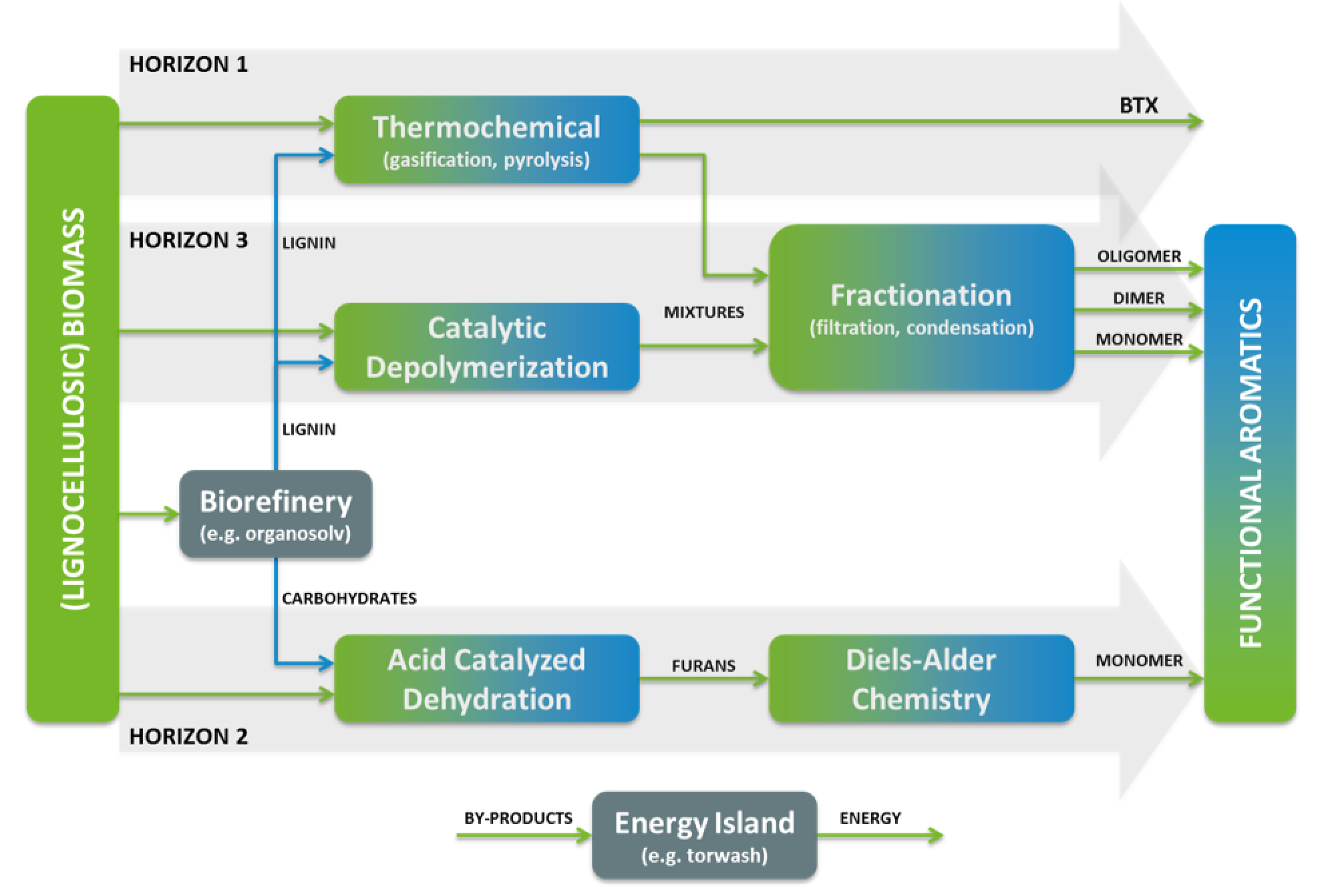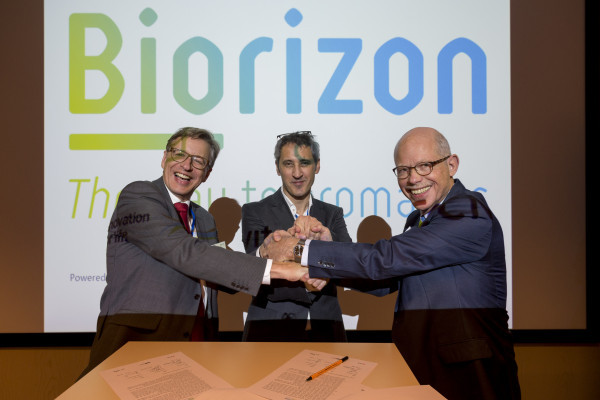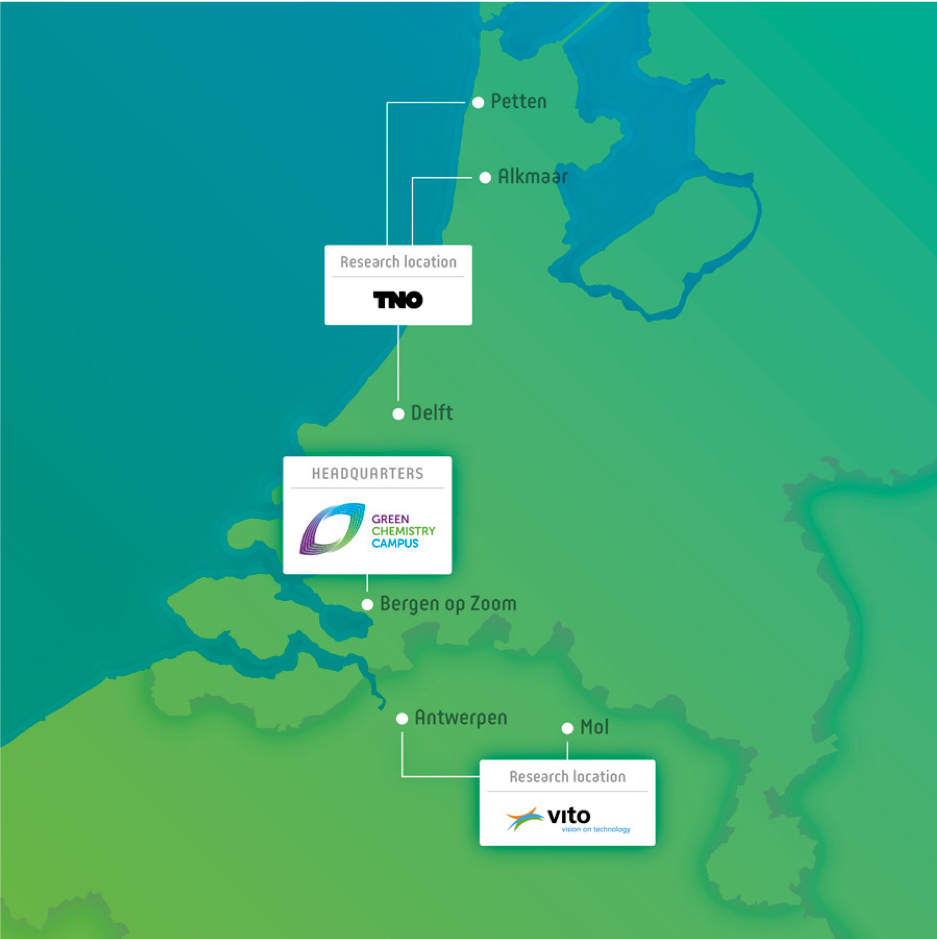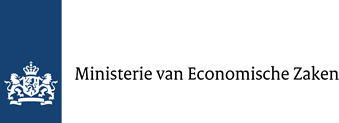Because of climate change and exhaustion of the world’s natural resources, there is a need for sustainable alternatives to petrochemical aromatics. Shared Research Center Biorizon, an initiative of TNO and VITO, has been co-creating technologies for the commercial production of bio-aromatics since 2013. Aromatics are important building blocks for the chemical industry, and no less than 40% of chemicals are aromatic. Aromatic molecules bring essential functionalities such as durability and thermal and UV stability to products like plastics, resins and coatings.
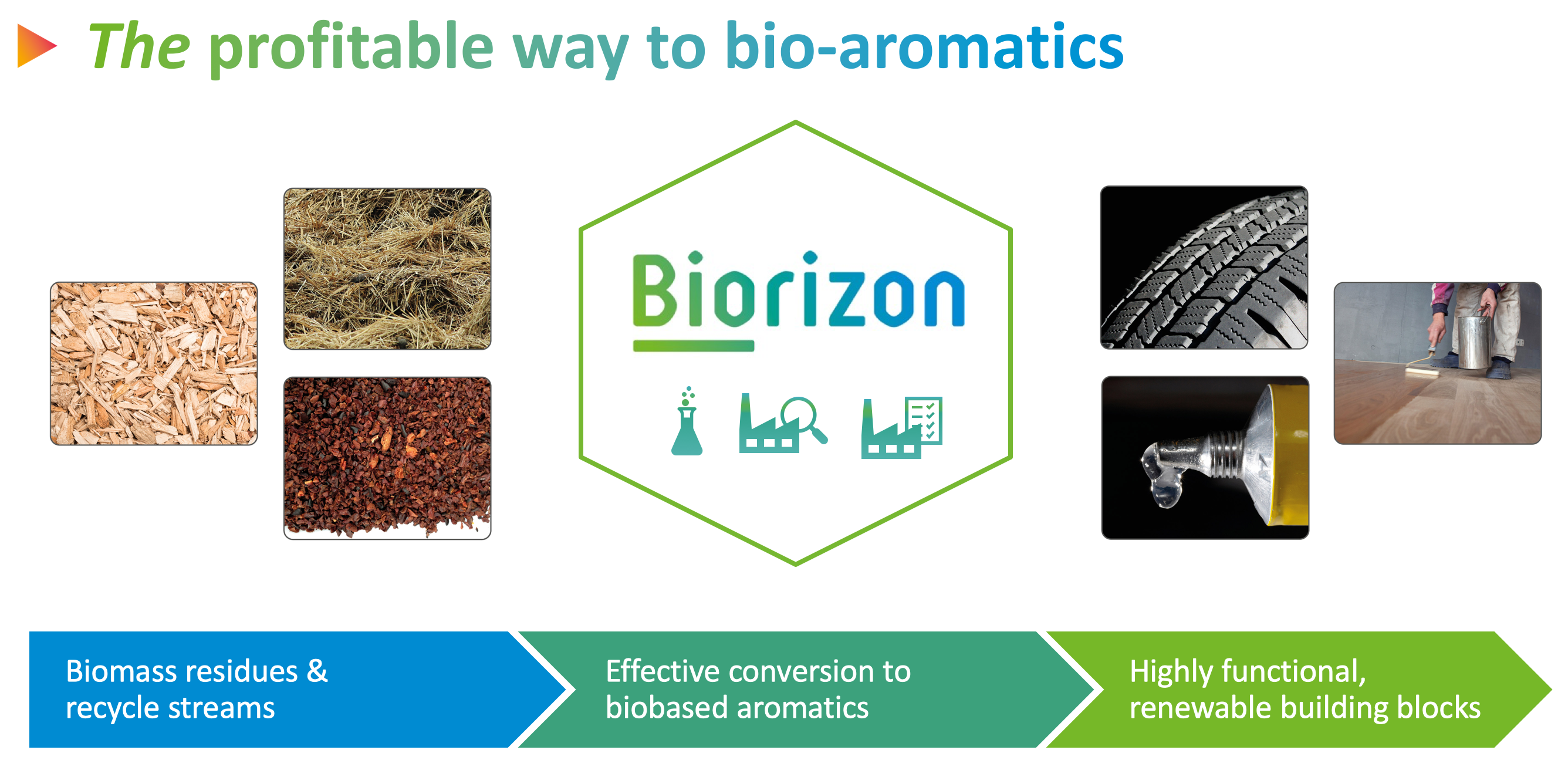
Together with industrial partners, Biorizon develops technologies to use residual biomass and recycle streams for the production of bulk and specialty aromatics. These bio-aromatics provide new functionality and an impactful and green alternative for current petrochemical products that are difficult to re-use or recycle, including paints, adhesives and lubricants.
Biorizon collaborates with global feedstock providers, technology developers, process operators and brand owners to make commercial production of bio-aromatics feasible by 2025. Thanks to Biorizon’s high-quality facilities, specialized knowledge, years of experience and the successful involvement of the entire bio-aromatics value chain, we manage to produce bio-aromatics continuously (on a kg/h scale). We are currently validating our continuous processes and working toward the next stage: demonstration. This makes Shared Research Center Biorizon the most advanced and valued research program in bio-aromatics worldwide.
If you share our ambition and want to collaborate with our Shared Research Center, please join our community, visit the Biorizon headquarters at the Green Chemistry Campus in Bergen op Zoom (NL) or reach out to our business development managers.
PS: Please note that Biorizon is not related to BioHorizon, EU-funded network of National Contact Points (NCPs) for Horizon 2020 Societal Challenge 2. If you are looking for BioHorizon, please go to www.ncp-biohorizon.net
